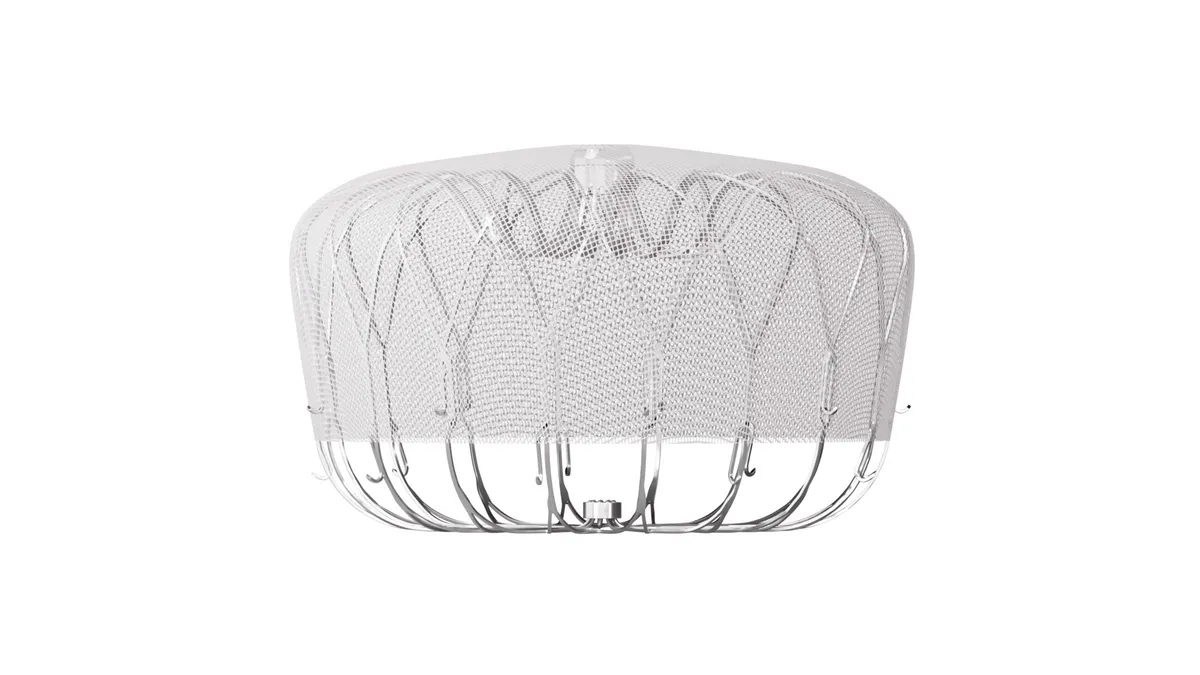Dive Brief:
- Boston Scientific’s Watchman left atrial appendage (LAA) closure device to prevent stroke resulted in significantly less bleeding after an ablation procedure than taking blood thinners, according to a new study.
- The trial, led by the Cleveland Clinic and funded by Boston Scientific, is the first to compare LAA closure to oral anticoagulants in patients who had an ablation procedure to treat atrial fibrillation (AFib), an irregular heartbeat that increases stroke risk. Both arms of the study had low rates of stroke, blood clots and death, which is good news for patients, Oussama Wazni, vice chairman of cardiovascular medicine at the Cleveland Clinic, told MedTech Dive.
- “The main takeaway is that now we have a choice after an ablation. When a patient is concerned about continuing oral anticoagulation, we have a choice of a device, and you won't need to take blood thinners long-term,” said Wazni, the study's principal investigator. The findings were presented Saturday at the American Heart Association’s Scientific Sessions and published online in the New England Journal of Medicine.
Dive Insight:
More patients with AFib are undergoing cardiac ablation to treat the condition, but guidelines recommend those at high risk for stroke remain on blood thinners afterward in case of AFib recurrence. However, long-term use of blood thinners poses a risk of serious bleeding.
“Regardless of ablation or no ablation, 25% of patients who should be on a blood thinner stop taking it in a year for a variety of reasons,” including cost or bleeding, said Wazni.
The Watchman implant closes the LAA to prevent clots from escaping and blocking blood flow to the brain.
The study of 1,600 patients, called Option, showed the Watchman FLX device was non-inferior to oral anticoagulation, meeting its primary efficacy endpoint of death, stroke or embolism at three years. The rate of those events was 5.3% in the device group vs. 5.8% in the oral anticoagulation group.
“The event rate was lower in the investigation on the device arm than oral anticoagulation,” Wazni said.” So it gives us a lot of confidence that it is truly non-inferior to blood thinners and equivalent to blood thinners in reducing the risk of stroke.”
The data also met the primary safety endpoint of non-procedural major bleeding or clinically relevant non-major bleeding. On that measure, the device demonstrated superiority to oral anticoagulation, at 8.5% vs. 18.1%.
"These positive primary outcomes mean that patients receiving the [Watchman] FLX device were able to eliminate long-term medication use while maintaining stroke protection,” Brad Sutton, chief medical officer for atrial fibrillation solutions at Boston Scientific, said in a statement Saturday. “With this data, we see potential to both expand the indication for the [Watchman] FLX platform and ultimately elevate it to become a frontline therapy for patients receiving cardiac ablation for atrial fibrillation to reduce their risk of stroke."
BTIG analyst Marie Thibault noted that Boston Scientific expects to receive a label expansion from the Food and Drug Administration in the second half of 2025.
“We believe these data support the use of Watchman to decrease the risk of long-term bleeding and manage the risk of stroke in post-ablation patients,” Thibault wrote in a note to clients Sunday.
In addition to the Option trial, Watchman is being evaluated against direct oral anticoagulants as a first-line therapy in lower-risk patients in the Champion-AF trial, Boston Scientific said.










